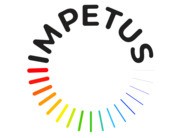 | IMPETUS4CS: IMPETUS Accelerator Call |
| Website | https://impetus4cs.eu/ |
| Submission link | https://easychair.org/conferences/?conf=impetus4cs |
IMPETUS is a project funded by the European Commission to support and give recognition to citizen science in Europe.
IMPETUS' goal is to
- enable more diverse citizen science initiatives to access funding;
- bring citizen science closer to society and policy makers;
- acknowledge the role of citizen science in tackling the greatest challenges of our times; and
- enable citizen science initiatives to contribute to Green Deal and UN Sustainable Development Goal commitments.
IMPETUS supports citizen science initiatives addressing two challenges per call. For this first open call, these topics are Healthy Planet and Cities for Life.
Two types of grants are available:
- Projects that are no more than six months into their citizen science journey and are yet to establish a community and/or data collection and processing procedures, can apply for a Kickstarting grant, worth 20,000 €. We aim to award 30 kickstarting grants in this first call.
- Projects that are more advanced, with established processes, an engaged community, and initial evidence of impact, can apply for a Sustaining grant, worth 10,000 €. We expect these grants to be awarded for the continuation, enhancing of impact, and/or further establishment of existing projects. We aim to award 5 sustaining grants in this first call.
We are seeking to fund projects that can make a difference, at local, national or international scale. We are particularly interested in applications that propose novel, less explored participatory roles for citizens and other key stakeholders, and that engage with marginalised, underrepresented or disadvantaged groups.
This open accelerator call is for funding and support for citizen science initiatives. If you are looking to apply for the European Union Prize for Citizen Science, please refer to the prize applicatin page.
IMPETUS takes an inclusive view on citizen science. We broadly follow the Green Paper on Citizen Science for Europe from January 2014, which defines it as the public participating “in scientific research activities, when citizens actively contribute to science either with their intellectual effort or surrounding knowledge or with their tools and resources.”
The term covers a range of activities with different levels of participation, from data collection in projects led by trained scientists, to co-designing research questions and policy, to science literacy and public engagement. To truly be considered citizen science it is important that projects have the intention to contribute to research, to produce new research-based knowledge, and for their activities to be carried out by participating citizens. Citizen participation is inherent to citizen science projects and their goals.
Citizen science engages volunteers in a range of scientific activities. This helps educate and inform citizens in the subject matter and leads to greater public understanding of how science and scientists work. Participation in citizen science can increase trust in science and expert opinions, enhance critical thinking, and ultimately fight misinformation, disinformation and fake news. Scientists can learn from citizen science about what people genuinely care about, the impact their work has or should have in society, and become more participatory, by involving volunteers early on in co-designing the research, collecting, cleaning, and analysing the data, documenting the results, and sharing the recognition.
While inclusive, various types of relevant activities are not citizen science. For example: for us it is important that there is a scientific question and methodology, and that the activities are carried out by participating citizens.
Individuals, legal entities and consortia established in a country or territory eligible to receive Horizon Europe grants (see this list for details) are eligible to apply. Note that the UK is currently not yet an associated country, and therefore UK applicants are not eligible. We will monitor the situation and revise this if it changes. Russian and Belorussian nationals are eligible to apply, provided that their habitual residence is in an eligible country.
For consortia, all applicants must be eligible. They must choose a lead who will submit the application and engage with IMPETUS on their behalf. Every entity is allowed to participate in one application, either on its own or as part of a consortium.
IMPETUS will provide funding for a six-month project, which must be implemented during the IMPETUS acceleration program, scheduled to take place between June and December 2023.
All applications for either grant have to be clearly related to one of our challenges. Projects in which citizens will produce data to help with scientific inquiries needs to include in their application how data will be managed during and after the project, including, if relevant, any GDPR and ethical concerns.
The funding can be spent on salaries, equipment, consumables, travel, subcontracting to other entities, and indirect expenditure (calculated as 25% of the total direct costs), in accordance with Horizon Europe guidelines. (See here for an accessible overview.)
The activities you plan to carry out with IMPETUS cannot receive double funding. Synergies with other sources of funding, including other Horizon Europe projects, are encouraged as long as the grants
Please refer to our Guide for Applicants and Frequently Asked Questions in the first instance. We also offer two webinars, for which you can register on our website. For further questions, you can contaxt us on opencall@IMPETUS4cs.eu.
